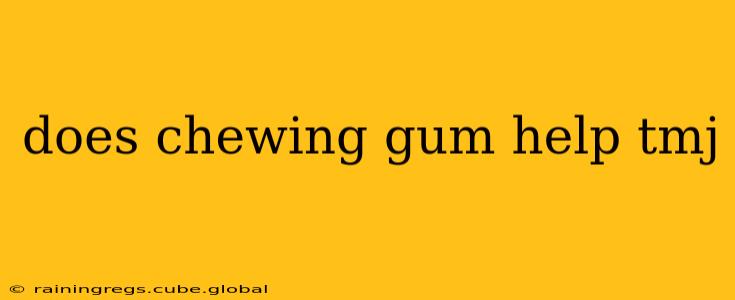Temporomandibular joint (TMJ) disorders are a common source of facial pain and discomfort. Many people seek relief through various methods, and chewing gum is sometimes suggested as a potential remedy. But does chewing gum actually help TMJ, or could it potentially worsen the condition? Let's delve into the complexities of this question.
The short answer is: it's complicated. While some believe chewing gum can strengthen jaw muscles and improve TMJ function, the scientific evidence is far from conclusive, and it can even be detrimental depending on your specific situation. The effects of chewing gum on TMJ depend on several factors, including the type of gum, the frequency and intensity of chewing, and the underlying cause of your TMJ disorder.
Can Chewing Gum Strengthen Jaw Muscles?
One argument in favor of chewing gum for TMJ relief is that it strengthens the muscles of mastication (chewing muscles). Regular chewing could potentially improve muscle tone and endurance. However, this benefit is highly dependent on how you chew. Aggressive or prolonged chewing could exacerbate existing TMJ problems. Gentle, mindful chewing might offer a slight benefit, but the evidence is limited.
Does Chewing Gum Reduce TMJ Pain?
There's no substantial scientific evidence to support the claim that chewing gum directly reduces TMJ pain. In fact, for some individuals with TMJ disorders, the act of chewing gum might increase pain and discomfort by putting additional stress on the already strained joint. The repetitive jaw movements could further irritate inflamed tissues or worsen existing conditions like disc displacement.
What are the Potential Risks of Chewing Gum for TMJ?
Several risks are associated with chewing gum, particularly for individuals with pre-existing TMJ issues:
- Increased Jaw Muscle Strain: Excessive or forceful chewing can lead to increased tension and strain in the jaw muscles, potentially worsening pain and inflammation.
- Joint Irritation: Repetitive jaw movements can irritate the TMJ, leading to further discomfort and potentially exacerbating existing damage.
- Exacerbation of Existing Conditions: Chewing gum could worsen conditions like temporomandibular joint dislocation or osteoarthritis of the TMJ.
- Headaches: The strain on the jaw muscles can trigger or worsen headaches, a common symptom associated with TMJ disorders.
What are Better Alternatives for TMJ Pain Relief?
If you suffer from TMJ pain, it's crucial to consult a healthcare professional, such as a dentist, orthodontist, or physical therapist specializing in TMJ disorders. They can accurately diagnose the underlying cause of your pain and recommend appropriate treatment options. These options might include:
- Physical Therapy: Exercises designed to strengthen and relax jaw muscles.
- Medications: Pain relievers, muscle relaxants, or anti-inflammatory drugs.
- Splints or Mouthguards: These devices can help realign the jaw and reduce strain on the TMJ.
- Lifestyle Changes: Stress management techniques, improved posture, and dietary adjustments.
Can Specific Types of Chewing Gum Help TMJ?
There's no scientific evidence suggesting that one type of chewing gum is superior to another for TMJ relief. The key factor is the manner of chewing, not the specific gum. Aggressive chewing, regardless of the gum type, is likely to be detrimental.
Is Chewing Gum a Good TMJ Exercise?
Chewing gum is not considered a good TMJ exercise. While it might involve some jaw muscle activity, it lacks the controlled and targeted approach of exercises prescribed by a physical therapist. Uncontrolled chewing could easily lead to more harm than benefit.
Should I Avoid Chewing Gum If I Have TMJ?
For individuals with TMJ disorders, it's generally recommended to avoid excessive chewing, including chewing gum. If you choose to chew gum, do so sparingly and with gentle, mindful movements. However, it's always best to consult your healthcare provider for personalized advice.
In conclusion, while the idea of chewing gum strengthening jaw muscles is appealing, the potential risks outweigh any potential benefits for most people with TMJ disorders. A proper diagnosis and treatment plan from a healthcare professional is crucial for effective TMJ pain management. Never self-treat; seek professional help to find the best course of action for your individual needs.
